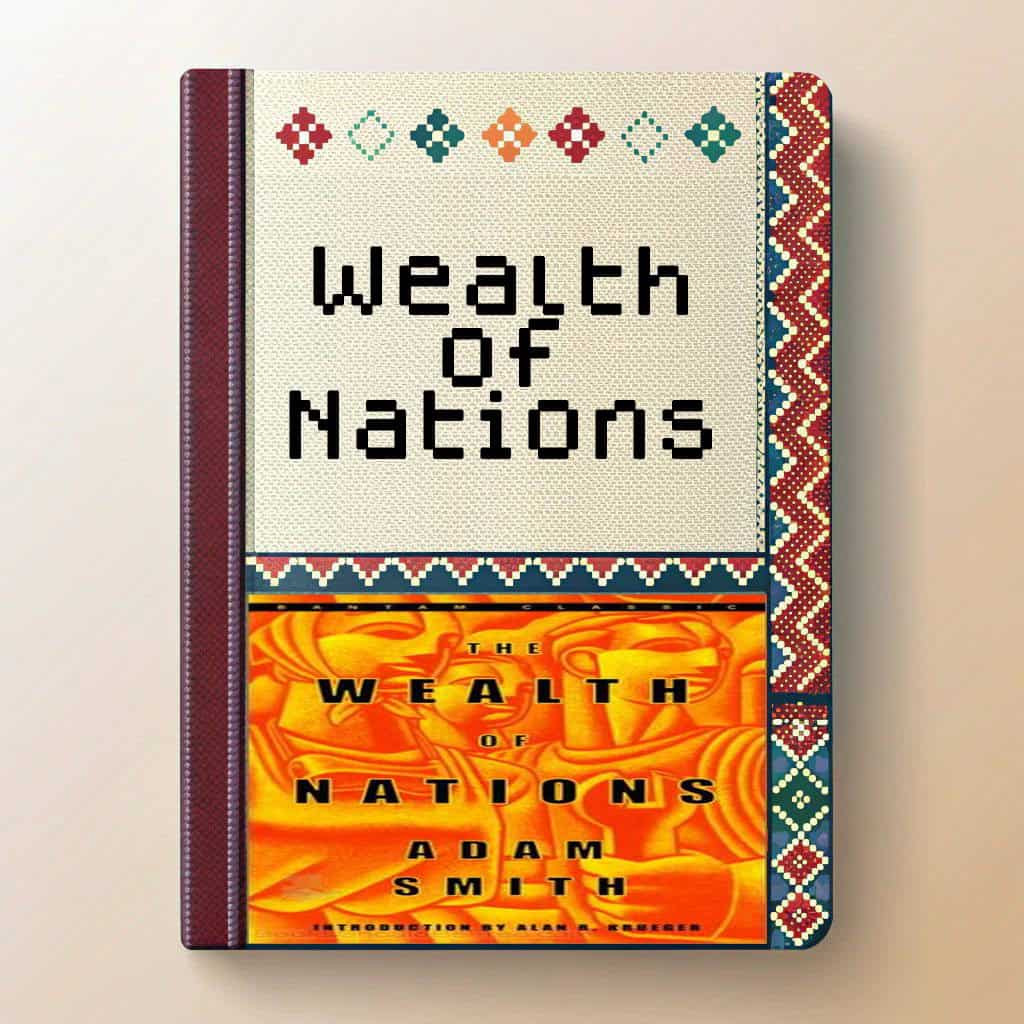Audiobook Sample
Listen to the sample to experience the story.
Please wait while we verify your browser...
- Title: Wealth of Nations
- Author: Adam Smith
- Narrator: Unknown
- Length: 09:19:00
- Version: Abridged
- Release Date: 01/01/2011
- Publisher: Books Should Be Free
- Genre: Business & Economics, Economics
- ISBN13: SABFAB9780894
As I sit in my office, surrounded by towering stacks of books and the faint hum of my laptop, I find myself drawn into the world of Adam Smith’s *An Inquiry into the Nature and Causes of the Wealth of Nations*, delivered through the free audiobook narrated by an unnamed voice. Published in 1776, this monumental work in economics feels both timeless and strikingly relevant, and the audiobook experience offers a fresh lens through which to explore its depths. What fascinates me most is how Smith’s ideas—born at the dawn of the Industrial Revolution—resonate in today’s globalized economy, and how the narration shapes our engagement with his intellectual legacy.
This audiobook came to me at an opportune moment. Recently, I’ve been reflecting on a memory from my Contemporary Fiction seminar at Berkeley, where we dissected how different mediums—print, digital, audio—alter a narrative’s texture. Listening to *Wealth of Nations* reminded me of those lively debates, particularly when we compared the layered storytelling of *Cloud Atlas* across formats. Smith’s prose, dense with economic theory yet surprisingly lucid, takes on a new rhythm when spoken aloud. The experience feels akin to a lecture hall discussion, where ideas unfold gradually, inviting contemplation. It’s a personal connection I hadn’t anticipated, bridging my academic past with this eighteenth-century text.
Smith’s work is a tapestry of economic principles that remain foundational. Through a cultural lens, I see his concept of the division of labor—vividly illustrated with the pin factory—as a metaphor for societal cooperation, a theme that echoes across literature from Dickens to Murakami. His ‘invisible hand,’ guiding self-interest toward collective good, feels almost poetic, a narrative device that binds individual ambition to communal prosperity. Meanwhile, his critique of mercantilism and advocacy for free markets challenge us to rethink power structures—a topic I often explored in my studies of Asian literature, where economic systems intertwine with cultural identity. Smith’s emphasis on capital accumulation, too, sparks thoughts of how wealth shapes narratives, a thread I traced while reading Haruki Murakami’s *Kafka on the Shore* during my year in Tokyo. There, the interplay of language and economy revealed how translation shifts perception—much like how this audiobook reinterprets Smith’s text through sound.
The narrator, listed simply as ‘Unknown’ by Books Should Be Free, delivers a performance that’s both a strength and a limitation. The voice is steady, measured, and clear—qualities that suit Smith’s methodical arguments. It’s as if a seasoned professor is guiding us through the text, pausing just long enough for concepts like laissez-faire to sink in. The audio quality is crisp, and at just over nine hours, the pacing feels deliberate, never rushed. This makes the listening experience accessible, especially for those new to economics. Yet, I found myself yearning for more dynamism. Smith’s ideas, revolutionary in their time, deserve a touch of passion—a spark to mirror the fervor of the Scottish Enlightenment. The narration, while competent, lacks the emotional cadence that could elevate key passages, like the invisible hand, into something truly memorable. Still, for a free audiobook, the production is commendable, offering an economical entry point to a seminal work.
The strengths of this audiobook lie in its clarity and Smith’s enduring insights. His dismantling of mercantilist dogma feels as sharp today as it did in 1776, especially when I think of modern trade debates. The free-market advocacy sings through the narration, making it a compelling listen for anyone interested in economics or history. Yet, there are limitations. Smith’s focus on self-interest can feel narrow, sidelining ethical questions about inequality—a critique I’d pair with Marx’s *Das Kapital*, which I often discuss with my students. The audiobook format, too, struggles with the text’s density; without visuals of Smith’s examples, like the pin factory, some nuances may slip past casual listeners.
Compared to other economic works, *Wealth of Nations* stands apart. Where mercantilist texts by Thomas Mun cling to control, Smith’s vision soars with freedom. David Ricardo’s later refinements in *Principles of Political Economy and Taxation* build on this foundation, while Keynes’ *General Theory* offers a counterpoint, urging intervention where Smith steps back. Listening to this audiobook, I felt the weight of these dialogues across centuries, a testament to Smith’s influence.
I’d recommend this audiobook to students of economics, history buffs, and anyone curious about the roots of modern capitalism. It’s especially appealing as a free resource—an intellectual treasure trove at no cost. Pair it with a quiet afternoon and a notebook; the listening experience rewards active engagement. For those less versed in economics, a companion guide might help unpack denser sections, but the narration’s clarity mitigates much of that challenge.
Reflecting on this, I’m reminded of my time in Tokyo, where reading Murakami in dual languages revealed how medium shapes meaning. This audiobook, too, reshapes Smith’s narrative—not just through his words, but through the voice that carries them. It’s a bridge between past and present, a reminder of how ideas evolve with each telling. For me, it’s been a journey of rediscovery, blending my love of literature with an unexpected appreciation for economic storytelling.
So, dear listeners, dive into this free audiobook with an open mind. Let Smith’s insights wash over you, and see where they take your thoughts—perhaps to a seminar room, a Tokyo bookstore, or simply a deeper understanding of the wealth that surrounds us.
With intellectual curiosity and a nod to the invisible hand,
Prof. Emily Chen

